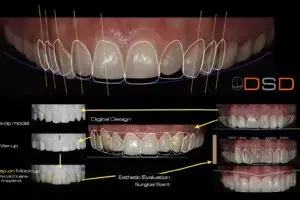A tooth infection is a serious dental issue that requires prompt treatment to prevent further complications. An untreated tooth infection can spread to surrounding tissues, bones, and even other parts of your body, causing severe pain and health risks. If you suspect you have a tooth infection, it’s important to take action immediately. In this article, we’ll explore the symptoms of a tooth infection, how it can be treated, and what steps you can take to prevent it from happening in the first place.
Signs of a Tooth Infection
Tooth infections typically occur when bacteria enter the tooth through a cavity or a crack in the enamel. If you have an infection, you may experience several symptoms, including:
1. Persistent Tooth Pain
One of the most common signs of a tooth infection is persistent tooth pain. The pain can range from mild to severe and may worsen when chewing or touching the affected tooth. It may also be accompanied by a throbbing sensation.
2. Swelling in the Gums or Face
If the infection has spread to the surrounding tissues, you may notice swelling in your gums or face. This swelling can be accompanied by redness and tenderness. The swelling may worsen if the infection is left untreated, and it can even lead to the formation of an abscess.
3. Sensitivity to Hot or Cold
Tooth infections can cause extreme sensitivity to hot or cold foods and drinks. If you experience sharp pain when consuming anything hot or cold, it could be a sign that an infection is affecting the tooth pulp.
4. Bad Breath or Unpleasant Taste
An infected tooth can emit a foul odor or cause a bad taste in your mouth. This is often due to pus buildup from the infection. If you notice an unusual odor or taste in your mouth, it may be a sign of a tooth infection.
5. Fever
In some cases, an infection in the tooth can lead to fever, which is a sign that your body is fighting off the infection. If you experience a fever along with other symptoms of a tooth infection, it’s essential to seek immediate dental care.
How Tooth Infections Affect Your Health
If left untreated, a tooth infection can lead to serious complications. The infection can spread to other areas of the mouth, jaw, or even the bloodstream. Here are some potential health risks associated with tooth infections:
1. Spread of Infection to Other Areas
A tooth infection can spread to nearby tissues, bones, and even the sinuses. In severe cases, the infection can cause a condition known as cellulitis, which is a widespread bacterial infection of the skin and soft tissues. This can lead to further pain, swelling, and potentially life-threatening complications.
2. Abscess Formation
An abscess is a pocket of pus that forms as a result of a bacterial infection. If a tooth infection is not treated, it can cause an abscess to form at the tip of the root, leading to intense pain, swelling, and drainage of pus. Abscesses need to be drained by a dentist, and the infection must be treated to prevent it from spreading.
3. Risk of Sepsis
In rare cases, an untreated tooth infection can spread to the bloodstream and lead to sepsis, a life-threatening condition. Sepsis occurs when the body’s response to infection causes widespread inflammation, potentially leading to organ failure. Sepsis requires immediate medical treatment and can be fatal if not addressed quickly.

Treatment Options for Tooth Infections
If you suspect you have a tooth infection, it’s important to see a professional dentist as soon as possible. Your dentist will evaluate the infection and determine the best course of treatment. Here are the most common treatment options for tooth infections:
1. Root Canal Treatment
A root canal is often the most effective treatment for a tooth infection. During a root canal, your dentist removes the infected tissue from inside the tooth and fills the cavity to prevent further infection. This procedure can save the tooth and alleviate the pain associated with the infection.
2. Antibiotics
In some cases, your dentist may prescribe antibiotics to help clear the infection. Antibiotics are often given to reduce the spread of infection before performing a dental procedure, such as a root canal. However, antibiotics alone will not resolve the infection, and a dental procedure will still be required.
3. Tooth Extraction
If the infection has caused significant damage to the tooth, your dentist may recommend extracting the tooth. This is typically a last resort if the tooth cannot be saved with a root canal. After the tooth is removed, your dentist will discuss options for replacing the tooth, such as a dental implant or bridge.
4. Drainage of an Abscess
If an abscess has formed due to the infection, your dentist may need to drain the pus to relieve pressure and pain. This is often done in conjunction with a root canal or extraction, depending on the severity of the infection.
How to Prevent Tooth Infections
While tooth infections are sometimes inevitable, there are steps you can take to minimise your risk of developing one:
1. Practice Good Oral Hygiene
Brushing your teeth twice a day with fluoride toothpaste and flossing daily are essential habits to prevent cavities and gum disease, which can lead to infections. Regular dental checkups are also crucial for catching issues early and preventing infections from developing.
2. Address Cavities and Cracks Promptly
If you notice any cavities or cracks in your teeth, visit your dentist as soon as possible. Cavities and cracks provide an entry point for bacteria that can lead to infections. Early intervention can prevent these issues from turning into more serious problems.
3. Avoid Sugary and Acidic Foods
Sugar and acid can contribute to tooth decay, which can lead to infection if left untreated. Limit sugary snacks, soda, and acidic drinks to reduce your risk of cavities and infections.
4. Drink Plenty of Water
Drinking water helps keep your mouth hydrated and rinses away food particles and bacteria. It also promotes the production of saliva, which helps neutralise acids and protect tooth enamel.
Conclusion
A tooth infection is a serious issue that requires prompt attention from a dentist. If you experience symptoms like tooth pain, swelling, or a bad taste in your mouth, don’t wait seek treatment immediately. With timely intervention, most tooth infections can be treated effectively, preventing further complications and preserving your oral health. Practice good oral hygiene, address dental health issues early, and be mindful of your diet to reduce your risk of developing a tooth infection in the future.


